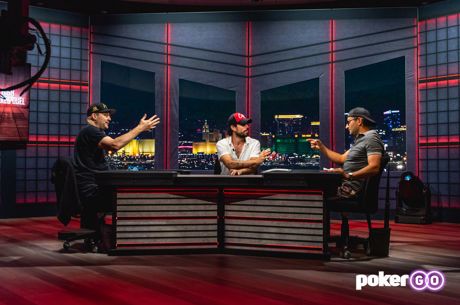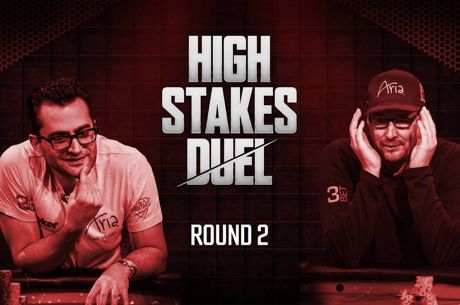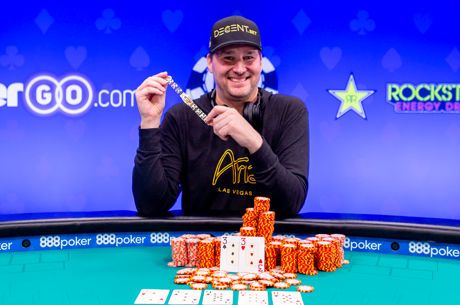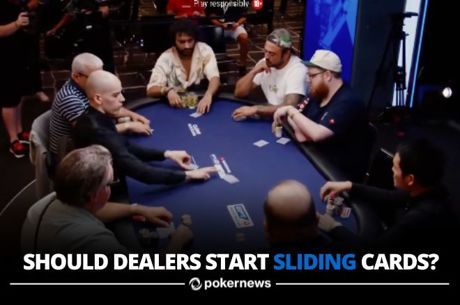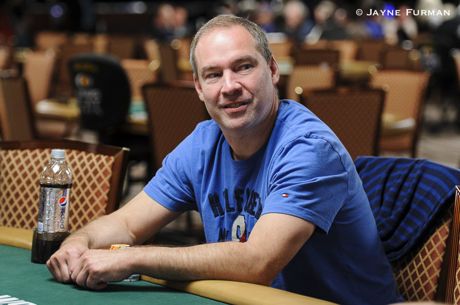A PokerNews Debate: Is Phil Hellmuth an Excellent Poker Player?
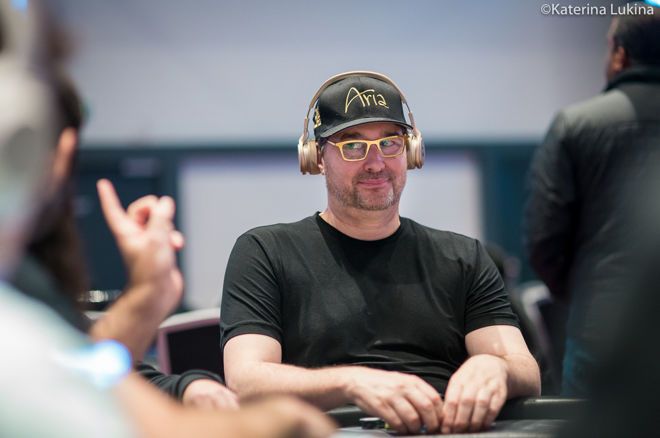
Table Of Contents
Recently, the poker world got into a bit of back-and-forth over the merits of Phil Hellmuth's poker skills.
While that's certainly nothing new, as "The Poker Brat" himself has made it a talking point with countless rants over the years, the source of this discussion was unique. That's because it was a high-stakes legend (Phil Galfond) — many of whom have been some of Hellmuth's biggest critics — actually praising him for his play. Of course, plenty of players, most notably the likes of Olivier Busquet and Fedor Holz, voiced their dissents.
PokerNews decided to take a shot at laying out both sides of the debate.
Hellmuth's Results Speak for Themselves
“Is Phil Hellmuth any good at poker?”
It’s a bit astonishing, but that may well be one of the longest standing questions in the poker world, one that has been debated for decades and divided friends. But it remains a question that is asked.
Galfond’s main point was the Hellmuth’s performance in the Poker Central duel match against Antonio Esfandiari showed that, whatever the mathematical analysis of his play might suggest, he has unique skills in the live poker arena.
Holz had a different take.
“He punted every 300K I’ve seen him play in so I don’t share your view,” he said.
It’s hard to dispute the poker skills on both sides of the argument. Both Galfond and Holz have impeccable resumes in poker, with solid reputations in the analytical side of the game. And they both make solid points.
Holz’s point about high-rollers is hard to dispute, but it’s also a bit beside the point. Hellmuth’s game is World Series of Poker events, and he plays that game better than anyone ever has. Leaving aside other poker events, Hellmuth hasn’t just done well in WSOP events - he’s crushed them like no one ever before.
Everyone knows about the record 15 bracelets, of course, but it goes a lot deeper than that. Hellmuth's 166 cashes is among the top counts, and he holds the record for most final tables (62). He is the only person ever to with both the Vegas Main Event and the European one. He stands fourth in total money from WSOP, but the only people ahead of him are players who crushed the $1 million One Drop tournament for huge scores. He was also the first player to win a bracelet in each of the last four decades, and only the third person to win a bracelets across four decades.
Perhaps his most astonishing statistic from the WSOP is a bit hidden though. In those 62 final table appearances at the WSOP, Hellmuth had gotten heads up in 26 of them, winning 15 and taking second in 11. That's more than 40% of the time he finished in the top two, a remarkable number.
Analyzing Hellmuth’s lifetime WSOP results leads to one of two inescapable conclusions. Either he has unique skills that allows him to crush WSOP events like no human ever has, or he’s the luckiest man on Earth, at least at the WSOP. The problem with the latter explanation is that it flies in the face of everything we know about probability and chance.
If poker is a game of skill measured over the long term, then it’s pretty hard to deny that Hellmuth has unique skills in WSOP-format games. His record in them, going into his fifth decade, is unparalleled by any of his peers. I don’t know what Hellmuth’s unique skills are exactly, but I know you don’t get a record like that across five decades on luck, and I think it’s probably worth listening to someone like Galfond when he says, “I just recognize that I witnessed greatness and that Phil Hellmuth knows something I don’t.”
Hellmuth may not be a “great poker player” in high rollers or cash games, but his record shows he’s unquestionably the best who ever lived at WSOP multi-table tournaments. I may not understand how he does it, but the mere fact he has done it shows his skills. You just don’t accumulate the WSOP honors Hellmuth has on luck alone.
-- Lyle Bateman
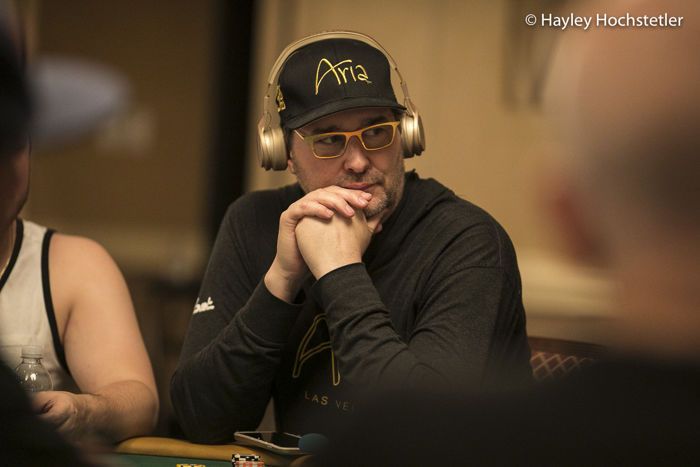
Countless Players Have Passed Him By and Deserve the Spotlight
There's no doubt Phil Hellmuth has posted excellent results over the years. It's hard to argue with 15 bracelets and $23.7 million in cashes, per The Hendon Mob. While that number might not represent a whole lot of profit for the high-roller circuit grinders of today, Hellmuth built it up in a much different age.
Still, excellent results and excellent skills are entirely different things.
A longtime debate among hoops fans gives a great parallel to looking at Hellmuth's poker skills.
The recent victory by the L.A. Lakers gave LeBron James his fourth NBA title, reigniting the debate about whether he or Michael Jordan is the best ever.
Both players were extremely dominant over their peers, but there's no doubt James did it against tougher competition because the concept of evolution means the environment is always getting tougher. Poker players should be very familiar with this concept. Therefore, it seems obvious to me that James is the better player, although I'd grant Jordan may have been more successful in his own era, which is all he could control.
In much the same manner, many of Hellmuth's successes came from a bygone era when nobody had much of a clue how to play poker with anything resembling optimal strategy. In fact, only six of his bracelets even came in the post-Moneymaker era. While that's still pretty damn strong, he really hasn't distanced himself at all from players like Phil Ivey, Daniel Negreanu and Michael Mizrachi.
So, metrics like bracelets and final-table appearances may be a testament to his longevity, but they don't really tell the tale of a guy lapping his peers as much as it may at first appear.
The fact of the matter is, the best players in the world are those beating the highest-stakes cash games. Always have been and always will be.
But even when it comes to the highest-stakes tournaments, it's telling that his competition doesn't consider Hellmuth among the elite. And Galfond himself even said that prior to watching the match with Esfandiari, his opinion fell right in line with Holz's. Should one anecdotal piece of evidence in a tiny sample really be altering his perception?
There's no doubt that while heads-up poker is the surest display of skill, Hellmuth was in a spot against Esfandiari where his ability to play an exploitative game can shine. He's always been a master at adjusting to weak opponents, and while Esfandiari isn't that, a similar concept may apply when Hellmuth is so familiar with an opponent's tendencies. Given their battles across literally decades, it seems safe to say he has a good sense of how to approach this particular opponent.
Hellmuth's ledger says he's accomplished more than almost any player in history. And again, the sheer staying power of his ability to post good results across this many years when countless peers fell by the wayside is testament to something.
His skills are worthy of respect, but they fall short of those possessed by many in the younger generation, who have shown an ability to win in tougher modern high-stakes fields. It's time the average poker fan realizes this, so those truly elite can be recognized as such.
-- Mo Nuwwarah


